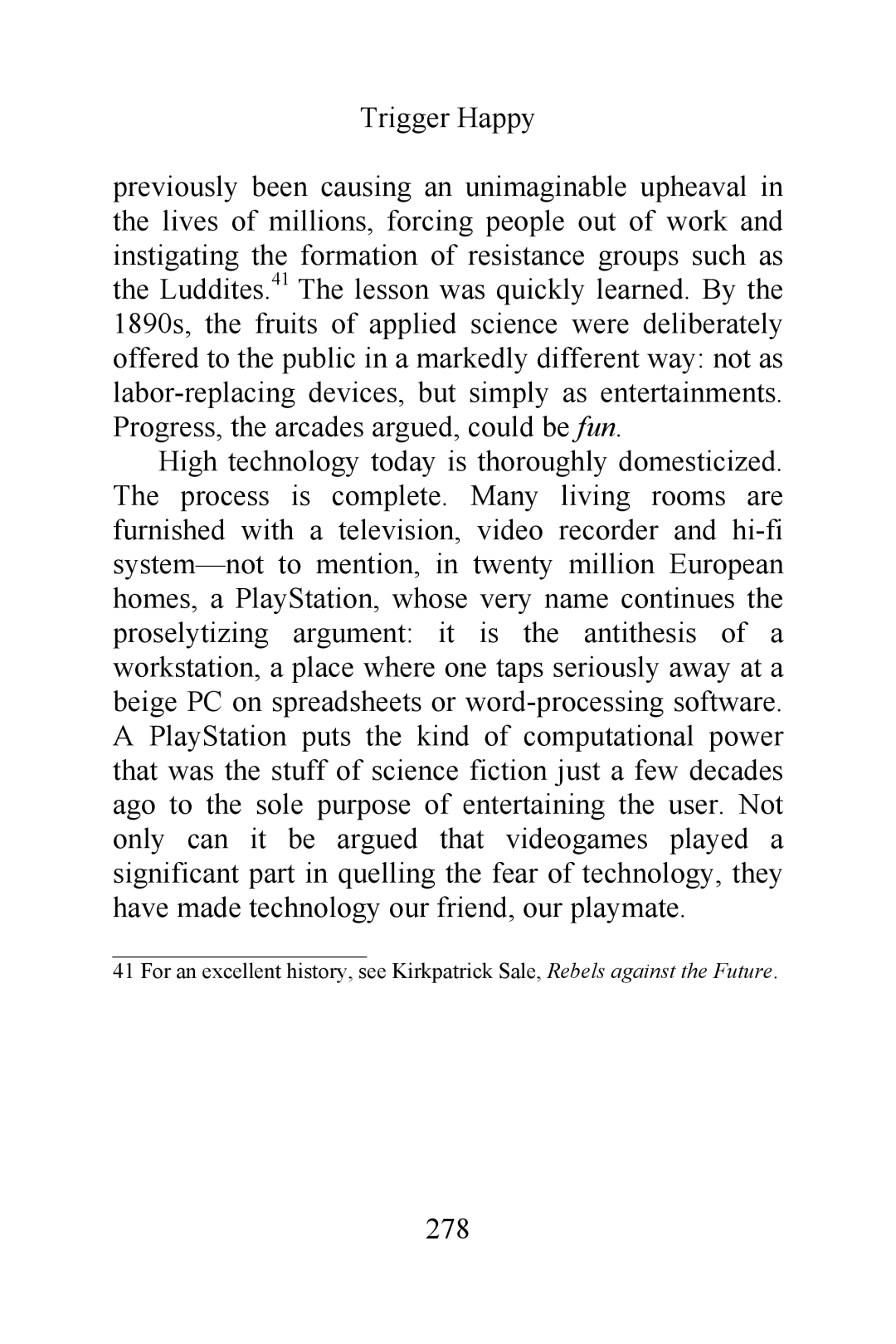Trigger Happy
previously been causing an unimaginable upheaval in the lives of millions, forcing people out of work and instigating the formation of resistance groups such as the Luddites.41 The lesson was quickly learned. By the 1890s, the fruits of applied science were deliberately offered to the public in a markedly different way: not as labor-replacing devices, but simply as entertainments. Progress, the arcades argued, could be fun.
High technology today is thoroughly domesticized. The process is complete. Many living rooms are furnished with a television, video recorder and hi-fi system—not to mention, in twenty million European homes, a PlayStation, whose very name continues the proselytizing argument: it is the antithesis of a workstation, a place where one taps seriously away at a beige PC on spreadsheets or word-processing software. A PlayStation puts the kind of computational power that was the stuff of science fiction just a few decades ago to the sole purpose of entertaining the user. Not only can it be argued that videogames played a significant part in quelling the fear of technology, they have made technology our friend, our playmate.
_________________
41 For an excellent history, see Kirkpatrick Sale, Rebels against the Future.
278
